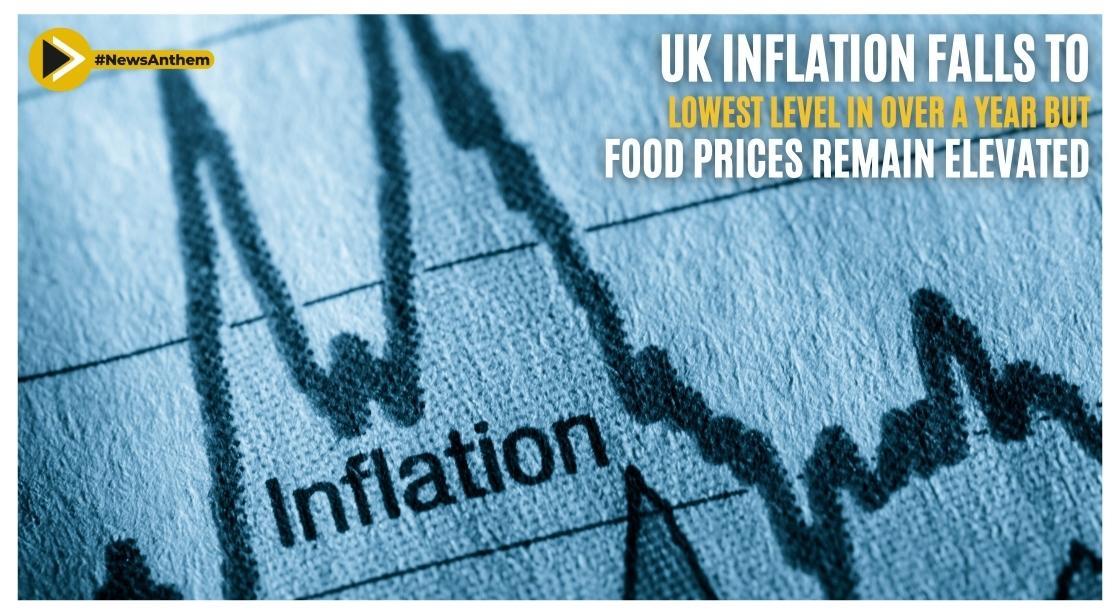UK Inflation Falls To Lowest Level In Over A Year

News Synopsis
UK Inflation Records Significant Drop, Yet Elevated Food Prices Persist
The Office for National Statistics (ONS) announced on Wednesday that inflation in the UK fell to 8.7% in April from 10.1% in March. This is the lowest level of inflation since March 2022, a month after the war in Ukraine began.
The fall in inflation was largely due to the fact that last year's energy spike dropped out of the annual comparison. However, prices in general remain substantially higher than they were this time last year, with annual food price inflation near historic highs.
Food Prices Remain Elevated
The main reason why inflation is consistently running higher than anticipated is that food prices remain elevated. The ONS said that the cost of food and non-alcoholic beverages rose by 8.7% in the year to April, the highest rate of inflation since March 2009.
The war in Ukraine has had a significant impact on food prices, as Russia and Ukraine are major exporters of wheat and other agricultural products. The war has also disrupted global supply chains, which has pushed up the prices of other food items.
UK Inflation Falls to Lowest Level Since Russia's Invasion of Ukraine
Official figures released by the Office for National Statistics reveal that inflation in the UK has reached its lowest point since the immediate aftermath of Russia's invasion of Ukraine. The consumer price index for the year ending in April dropped to 8.7% from the previous month's figure of 10.1%. This decline can be attributed to the absence of last year's energy price spike in the annual comparison. It marks the lowest inflation level since March 2022, shortly after the conflict began.
Food Prices Remain a Key Factor in Persistent Inflation
While the decrease in inflation is a positive development, it falls slightly short of market expectations. Financial analysts had anticipated a further easing to 8.3%. The ongoing elevation of food prices continues to exert upward pressure on inflation rates.
According to Grant Fitzner, the chief economist at the Office for National Statistics, the notable drop in the inflation rate can be attributed to the absence of significant energy price increases witnessed last year. However, this decrease was partially offset by rising costs of second-hand cars and cigarettes. Fitzner also highlighted that prices, in general, remain considerably higher compared to the same period last year, with food price inflation near historical highs.
Conclusion
The UK experiences a decline in inflation to its lowest level in over a year, primarily due to the absence of last year's energy price surge caused by the Russia-Ukraine conflict. However, food prices continue to remain elevated, posing ongoing challenges. Monitoring and addressing these persistent inflationary pressures remain crucial for the UK economy.
The fall in inflation is welcome news, but it is important to remember that prices in general remain substantially higher than they were this time last year. The war in Ukraine is likely to continue to have a significant impact on food prices, which could keep inflation elevated in the coming months.
Keywords: UK inflation, lowest level, official figures, consumer price index, energy costs, food prices, Russia's invasion of Ukraine, elevated inflation, financial markets, historical highs, Office for National Statistics.
You May Like









